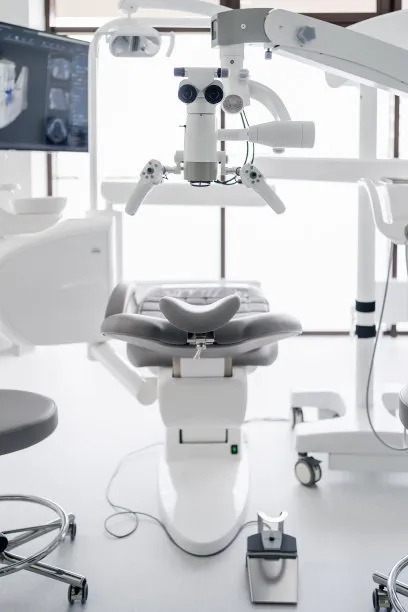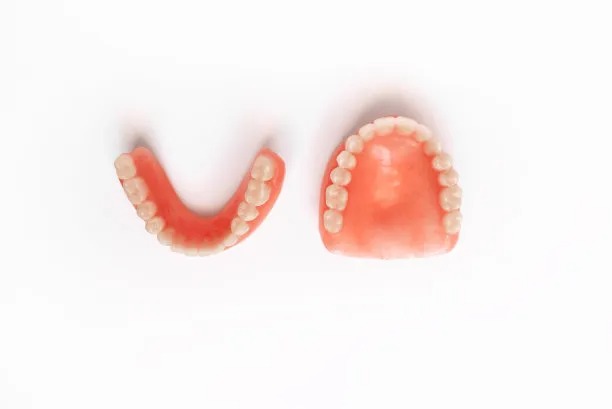Summary: Ensuring the longevity and effectiveness of dental fillings is essential for maintaining oral health. This article highlights four crucial precautions to take post-treatment: practicing good oral hygiene, avoiding hard or sticky foods, scheduling regular dental check-ups, and discussing any discomfort with your dentist. By adhering to these guidelines, patients can prolong the life of their fillings and prevent further dental issues. This proactive approach not only safeguards the integrity of the filling but also contributes to overall dental wellness and reduces the need for further treatments.
1. Practice Good Oral Hygiene Daily

Maintaining excellent oral hygiene is paramount to ensure the longevity of dental fillings. Brushing teeth at least twice a day with fluoride toothpaste helps remove plaque and prevent cavities from forming around or under the filling. Its essential to be gentle, particularly around the filled area, to avoid damaging the filling while ensuring thorough cleaning.
Flossing daily is another critical aspect of good oral hygiene. Floss helps to remove food particles and plaque that the toothbrush might miss, especially in the tight spaces between teeth where fillings are often located. This practice is particularly important following filling procedures, as these areas can be more prone to plaque accumulation.
Additionally, using an antibacterial mouthwash can compliment your oral hygiene routine. Mouthwash helps to reduce bacteria in the mouth and can provide extra protection for fillings. Regularly rinsing with mouthwash can also keep breath fresh and promote overall oral health.
2. Avoid Hard and Sticky Foods
Diet plays a significant role in the health and longevity of dental fillings. After receiving a filling, it is wise to avoid hard foods such as nuts, hard candies, and ice. Chewing on these items may put excessive stress on the filling, causing it to crack or loosen.
Sticky foods, including caramel and taffy, can also pose a risk to fillings. They can cling to the filling and make it difficult to clean, potentially leading to decay underneath. Moreover, biting into sticky foods can dislodge fillings, requiring additional visits to the dentist for repairs.
Instead, opt for softer foods, especially during the first few days after the filling procedure. Foods like yogurt, mashed potatoes, and soups are not only easier on your fillings but also help promote healing for any soreness post-treatment.
3. Schedule Regular Dental Check-Ups
Regular dental check-ups are essential in monitoring the condition of your dental fillings and overall oral health. Visiting your dentist every six months allows for professional cleanings that remove tartar buildup that cant be addressed at home. These visits also give your dentist the opportunity to check the integrity of your fillings.
During these check-ups, if your dentist notices any wear or damage to the filling, they can address it before it leads to more significant issues, such as infection or further decay. This proactive approach not only saves time but also reduces the likelihood of extensive treatment down the line.
Furthermore, dental professionals can offer customized advice based on the condition of your fillings and individual oral health needs. This personalized guidance can be invaluable in helping you maintain your dental work effectively.
4. Address Discomfort with Your Dentist Promptly
If you experience any discomfort or changes in sensation in the area of your filling, it’s imperative to consult your dentist immediately. Sensitivity after a filling can be common; however, prolonged discomfort may indicate that the filling is compromised or that decay is developing beneath it.
Ignoring pain or discomfort can lead to severe complications, such as infection or the need for more invasive procedures like root canals. Early intervention is key to minimizing any potential damage and prolonging the life of the filling.
Moreover, communication with your dentist about your experience can help adjust future treatments and preventive care. A good relationship with your dental care provider is critical for your ongoing oral health.
Summary:
In conclusion, ensuring the longevity and effectiveness of your dental fillings requires diligence in practice and awareness. By adopting good oral hygiene, avoiding harmful foods, scheduling regular dental check-ups, and addressing any issues promptly, you can protect your dental health effectively. These precautions not only help maintain fillings but also contribute to a healthier smile for years to come.
This article is compiled by Vickong Dental and the content is for reference only.
Vickong Dental
Vickong Dental is a large medical group established in Hong Kong in 2008 by professors from well-known medical universities in Guangdong and Hong Kong, as well as medical doctors from key national '985' universities (including Master's supervisors and senior professors). The chain of branches brings together expert dentists with PhDs and Master's degrees from Hong Kong and Mainland China, committed to providing high-quality dental treatment.
"Vickong Dental Practices the University Motto of 'Healing and Serving Society,' with a Stable Operation for Sixteen Years. It Has Been honored with Hong Kong Enterprise Leaders's Choice,' and is a Global Trusted Implant Center for the Nobel Implant System. Recommended by Hong Kong Metro Broadcast and Guangdong Television, it Serves Customers from Over Thirty Countries and Regions, Gaining the Trust and Favor of Citizens from the Guangdong-Hong Kong-Macau Greater Bay Area and Surrounding Cities.

Thousands of customers' unanimous praise
The most recognized and highly recommended dental service by customers in the Guangdong-Hong Kong-Macau Greater Bay Area
We Ensure You Receive Detailed Care and Attention Here
Hong Kong standards, Shenzhen prices, Your Trusted English-speaking dentists

Vickong Dental Medical-Grade Instrument Disinfection Process
Vickong Dental Medical-Grade Instrument Disinfection Process

Vickong Dental Chain: A Warm and Comfortable Environment for Treatment






Appointment Hours

Q&A
Why choose Vickong Dental?
Vickong Dental practices the university motto 「Medicine to Benefit Society」, with each branch bringing together highly qualified dentists with doctoral and master’s degrees from Hong Kong and the Mainland, and has maintained seventeen years of steady operation。Recipient of 「2024 Hong Kong Enterprise Leaders Brand」, 「2025 Hong Kong Enterprise Leaders Brand」, a Nobel Biocare Global Trusted Implant Center, and a brand recommended by Metro Radio Hong Kong and Guangdong TV。
To date, we have served customers from more than thirty countries and regions,earning exceptionally high word-of-mouth recognition and trusted recommendations from residents across the Guangdong-Hong Kong-Macao Greater Bay Area and surrounding cities
We have eight major branches in Zhuhai、Shenzhen,and a consultation and service assurance center in Hong Kong,so you can book a free consultation at any time for any questions,which is very reassuring.
If I do not accept the quotation after the CT scan, will I be charged??
No! As long as the actual treatment has not started, you will not be charged any fees.
Will there be any additional charges during the treatment process?
No, there won’t be any additional charges. Before treatment begins, we will clearly explain the treatment plan and its corresponding fees. Only after the patient agrees and signs the consent form will we proceed with the dental service.
Can I pay in Hong Kong dollars?
Yes. Vickong Dental accepts payment in Hong Kong dollars. The amount will be converted based on the exchange rate of the day, and the applicable rate will be clearly communicated to you in advance.
Can I reschedule my appointment at any time?
Yes. Please contact us via **WeChat** or **WhatsApp** as early as possible, providing your original appointment time and details, along with your preferred new date and time slot for rescheduling.













